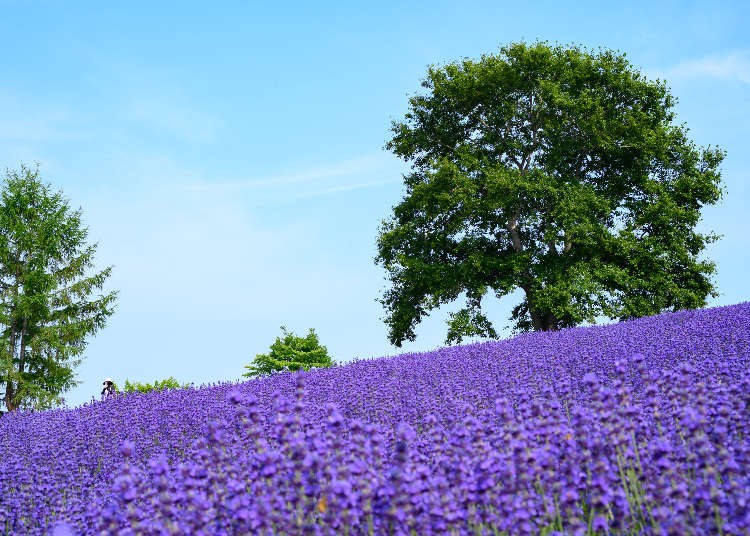
Lavender, with its vibrant purple hue and pleasant fragrance, colors Hokkaido's summer from late June to early August, peaking in July. While Furano's fields are famous, Sapporo was the first place in Japan to cultivate lavender, starting in 1940 in Minamisawa, Minami Ward.
As the birthplace of Japanese lavender, Sapporo boasts several stunning locations to enjoy these blooms. Join us on a one-day trip to explore three of these beautiful spots and experience Sapporo's lavender magic.
This page may contain promotional material
10 AM: Head To Makomanai Takino Cemetery from Sapporo Station
Makomanai Takino Cemetery, located in Minami-ku, Sapporo, is one of the largest cemeteries in Hokkaido, and is a rather unusual spot in Japan that also serves as a sightseeing attraction. Spread across the vast grounds are a number of monuments, restaurants, shops, and other facilities.
- By car: From JR Sapporo Station: Take Toyohiragawa Dori (Approx. 35 min)
- By public transportation: From Sapporo Subway Station, take Namboku Line to Makomanai Station, then transfer to cemetery-bound bus or local bus Takino Line 108 (approx. 40 min)
- View full directions here
Atama Daibutsu: A Great Buddha Statue Surrounded By Lavender!

Upon entering the main gate, you'll immediately spot the popular attraction known Atama Daibutsu (literally “Head of Buddha;” also known as Hill of the Buddha) on the right. This attraction encompasses both the 13.5-meter-high stone statue (Daibutsu), as well as the dome-shaped hall (Daibutsuden) that surrounds it.
The Daibutsu state was built as a symbol to watch over visitors and serve as a memorial to the spirits of the dead for all eternity. Originally, the statue stood alone, and it wasn’t until 2016 that the dome was constructed by world-renowned architect Tadao Ando in commemoration of the park's 30th anniversary. The design aimed to "spark imagination through the unseen," with the hall's roof concealed beneath a hill where thousands of lavender plants bloom annually around July.
At this time, the park also holds the Lavender Festival, featuring a promenade known as the “Road of Prayer,” open on weekends and holidays for visitors to get an up-close view of the Daibutsu’s face while reveling in the blossoms.
Surround Yourself by Hills of Lavender

The main types of lavender here are the select varieties known as Elegance Purple, Deep Purple, Hayasaki Komurasaki 3 (Early-Blooming Dark Purple 3), and Yotei.
Here's a quick look at each type:
・Elegance Purple: This variety is distinguished by its many branches sprouting from the base of the leaves on the stem, and a constant yield of large flowers.
・Deep Purple: True to its name, this variety produces deep purple flowers and is ideal for dried flower arrangements.
・Hayasaki Komurasaki 3 (Early-Blooming Dark Purple 3): A rather early-bloomer that starts flowering from around mid-June, with long-lasting, deep blue-purple blossoms that spectators can enjoy for a long time
・Yotei: Named for its cultivation near Mount Yotei, this variety features fragrant, reddish-purple flowers.
A Variety of Lavenders In Bloom:
This hillside area is also carpeted with fresh green in the spring and snow in winter, making it a place you'll want to revisit time and again for its seasonally changing scenery!
Inside Daibutsuden, the Great Buddha Hall

The approach leading to the interior of the Daibutsuden, or the Great Buddha Hall, is a highly recommended photo spot, the symmetrical layout of the buildings allowing for beautiful shots.

Upon entering the Daibutsuden, you'll find the "water garden" along the approach, said to serve as a boundary. Passing by this water garden is believed to purify the minds of visitors and help transition them to a more serene state of mind.
*Note: Garden not accessible during winter due to freezing temperatures. Additionally, it may not be filled with water on maintenance days, so please check in advance of your visit.

After passing through the dark tunnel, said to symbolize the "womb" or the "birth of the Buddha," you'll at last be greeted by the full view of the Daibutsu (the great Buddha statue), solemnly seated and towering above.

Inside the Daibutsuden are omikuji and ema (fortunes and votive tablets). The ema tablets featuring designs of the lavenders and the Daibutsu also make great souvenirs!
Indulge in Lavender Sweets and Exclusive Goods at Cafe and Store

To the left of the water garden you'll find Rotunda Cafe & Store. Aside from drinks and desserts, the store also carries original Atama Daibutsu goods that you'll only find here.

Highly recommended are the lavender-flavored sweets, particularly the lavender ice creams crafted by Missu House, a shop specializing in handmade ice cream.

In the summer you can also enjoy lavender soft-serve ice cream and lavender soda (available from mid-April to late October). Both are definitely worth a try if you're visiting Atama Daibutsu!

Takino Hakkakudo, located on the premises, offers a unique bell-ringing experience, allowing visitors the chance to try ringing the large bells for themselves! This activity is immensely popular amongst both domestic and international visitors alike, so if you're visiting the area, why not give it a try?
(*There's a small fee of 100 yen, for maintenance purposes.)
Explore the Other Monuments Across the Park!

Right outside the main gate stands a line of Moai statues. The word "Moai" comes from the Rapa Nui language of Easter Island, in which "mo" means "future" and "ai" means "life". It was constructed to "preserve the legacy of everyone’s stories for future generations."

Additionally, there's also a replica of British World Heritage Site, Stonehenge, a permanent memorial tomb constructed to "instill hope for the future in generations to come."
Things to note when visiting the park:
Remember that Makomanai Takino Cemetery is, first and foremost, a cemetery. Please respect its primary purpose as a sacred place for visitors to pay respects to their loved ones. If you're there to sightsee around the Moai statues, Stonehenge, or Atama Daibutsu, kindly follow the park's traffic and visitation regulations to ensure that everyone can fully enjoy their visit.
-
Makomanai Takino Cemetery真駒内滝野霊園
- Address 2 Takino Minami-ku, Sapporo-shi, Hokkaido 005-0862
Hill of the Buddha (Atama Daibutsu)
・Hours: Apr–Oct: 9 AM–4 PM; Nov–Mar: 10 AM–3 PM
・Closed: Designated days, maintenance days, and other days when closed due to weather conditions
・Admission: 300 yen (free for elementary students and under)
・Parking Lot: 7 AM–4 PM, 500 yen per vehicle per use
Road of Prayer Promenade
・Hours: July (Sat/Sun/National holidays only): 9 AM–4 PM
・Admission: Junior high and older: 500 yen; Elementary students and younger: Free
Furusato Mausoleum, Hakkakudo
・Hours: Apr–Oct: 8:30 AM–5 PM; Nov–Mar: 9 AM–3:30 PM
1 PM: Arrive at Sapporo Hitsujigaoka Observation Hill

Next, head to Sapporo Hitsujigaoka Observation Hill, a spot well-known for its statue of Dr. Clark. Located in Sapporo, Hokkaido's largest city, this scenic spot offers an idyllic view of grazing sheep and the expansive Ishikari Plains. It takes about 20 to 30 minutes by car from Makomanai Takino Cemetery.
Just a 20-30-minute drive from Makomanai Takino Cemetery, various seasonal events are held here throughout the year, including spring sheep-shearing tours and winter snow parks, giving Hokkaido visitors something to enjoy all year round!
- By car: From JR Sapporo Station (approx. 34 min)
- By public transportation: From Sapporo Subway Station, take Toho Line to Fukuzumi Station, then transfer to bus bound for Hitsujigaoka Observation Hill from Fukuzumi Station Bus Terminal Platform 4 (approx. 23 min)
- View full directions from Makomanai Takino Cemetery
A True Hokkaido Experience: A Beautiful Blend of White Birch and Lavender

Behind the Austrian Pavilion, recognized by its red triangular roof resembling a mountain hut, lies a lavender field spanning approximately 1,200 square meters. The variety cultivated here, known as "Okamurazaki," is known for its deep purple hues and delightful fragrance. Widely grown throughout Hokkaido, its aromatic flowers are often used in sachets and potpourri. The field is home to around 1,000 plants, each of which can produce an average of 300 flowers, totaling nearly 300,000 blooms! The lavender fields are also surrounded by rows of white birch trees, adding to the picturesque landscape of Hokkaido.
Experience Lavender Harvesting For Yourself!

The lavender fields also offer a free harvesting experience. Scissors, rubber bands, and bags for collecting lavender are provided at the reception tent, eliminating the need for your own personal tools. Visitors are allowed to harvest up to 50 lavender plants per person that they can take home. We recommend using your harvested lavender for making your own potpourri or dried flower arrangements! Note that harvesting will require moving and bending in order to pick your plants, so we recommend wearing comfortable attire.
・Event Period: July 4–18, 2024
・Hours: 10 AM–3 PM (Last admission: 2:45 PM)
*Schedule subject to change or cancellation due to weather or blooming conditions. Please contact for more information.
Indulge in Limited-Time Lavender Soft Serve Ice Cream!

At the Austrian Pavilion, visitors can indulge in lavender-flavored soft serve at Hitsujigaoka Soft, located on the first floor.

This lavender soft serve ice cream features a fresh lavender aroma that envelopes your taste buds from the very first bite. It's mildly sweet with a refreshing taste that brings joy with every spoonful.
For Lunch, Enjoy Jingisukan, Hokkaido's Gourmet Dish

After treating yourself to lavender sweets, satisfy your hunger with some of Hokkaido's famous gourmet dishes! Next to the Austrian Pavilion at Hitsujigaoka Rest House, visitors can enjoy jingisukan (a mutton dish) while marveling at the expansive view right outside the windows.

The special jingisukan grill features custom-made cast iron designed to cook meats at high temperatures in a single go. For the best flavor, grill the lamb atop a bed of vegetables as if steaming. The restaurant's homemade sauce, a signature since its inception, blends sweet and tangy tastes that further enhances the meat's own flavor.
Honoring Hokkaido's Legacy with a Statue of Dr. Clark!

The statue of Dr. Clark stands proudly against the beautiful landscape as a symbol of Sapporo. Sculpted by Saka Tando, this bronze statue is modeled after William Smith Clark, the father of the father of the Hokkaido Reclamation. Known as "Clark on the Hill," the statue depicts Dr. Clark with his famous motto "Boys, be ambitious!" His raised right hand is said to point towards "the eternal truth far, far away." Why not stand beside Dr. Clark and join him in his iconic pose for a photo?
City and Nature Views from the Chapel Roof!

Sapporo Blanc Birch Chapel is a wedding chapel located on the premises where you can hold your ceremony right in the midst of nature! In fact, the third floor rooftop is partially open as an observation space for sightseers. From this elevated viewpoint, visitors can see cityscape views of Sapporo, the observatory’s own facilities, and the nearby lavender fields!
Best Practices for Sun Protection
Not only is early to mid-July when the lavender fields are in full bloom, it also marks the peak of summer, when the sunlight is most intense. Due to limited shade in the fields, we recommend bringing a hat and sunscreen.
Facility Information
Observation Deck, Austrian Pavilion
・Hours: Jun–Sept: 9 AM–6 PM; Oct–May: 9 AM–5 PM
*Opening hours may differ for the Austrian Pavilion food court
Hitsujigaoka Rest House
・Hours: May–Sep: 11 AM–4 PM; Oct–Apr: 11:30 AM–3 PM
・Closed: Open daily
・Admission: Adults: 600 yen; Children: 300 yen
-

-
Address
1, Hitsujigaoka, Toyohira-ku, Sapporo-shi, Hokkaido, 062-0045
View Map -
Nearest Station
Fukuzumi Station (Toho Line)
10 minutes by bus
- Phone Number 011-851-3080
-
Address
1, Hitsujigaoka, Toyohira-ku, Sapporo-shi, Hokkaido, 062-0045
4:30 PM: Views of Sapporo City from Horomitoge Lavender Garden

The final destination is the Horomitoge Lavender Garden, managed by Dream Studio Sato. Situated at the end of a mountain road on the west side of downtown Sapporo, this garden opens for a limited time in July every year. For 2024, it's scheduled to run from July 5-31.

The lavender garden is located at the top of Horomitoge at an elevation of around 280-300 meters. Since there's no direct public transportation, we recommend taking a taxi from Maruyama Koen Station on the Tozai Subway Line. However, as the distance from the station to the garden is just about 4-5 km, those in good physical shape may consider making it a leisurely hike! From Sapporo Hitsujigaoka Observation Hill, it's about a 30-minute drive to the garden.
- By Car: From JR Sapporo Station, approx. 25 min.
- By public transportation: From Sapporo Subway Station, take Namboku Line to Odori Station, transfer to Tozai Line to Maruyama Koen Station, then take a cab (25 min)
- View complete directions from Sapporo Hitsujigaoka Observation Hill
Experience the Stunning Sapporo Cityscape Beyond the Lavender Carpets of Purple

The Horomitoge Lavender Garden has been cultivating lavenders since 1987. Starting with a mere 120 lavender plants, there are now nearly 8,000, making it the largest lavender field in Sapporo, and an immensely popular spot both locally and beyond. The lavenders grown here primarily belong to three varieties of the angustifolia family: Nana Narisawa, Violet Memory, and Noshihayazaki (Dark Purple Early-Blooming 3).
・Nana Narisawa: This lavender was cultivated in the 1990s by Narisawa Farm in Hokkaido, characterized by its darker hues and longer flower spikes.
・Violet Memory: A captivating variety with a vibrant purple hue. The flowers also tend to retain their color well when dried, making them perfect for dried arrangements.
・Dark purple early bloomer No. 3: An exceptionally early bloomer that starts flowering around mid-June. The buds are deep blue-purple in color, and spectators can admire their beauty for a long time.
In addition to these, there's a wide variety of other lavenders cultivated here, as well!

For great photos, we recommend taking them from an angle that includes central Sapporo City against the lavender fields. You’ll also be able to see the Sapporo TV Tower and JR Tower in the pic!
Harvesting Experiences Available Through July!

Visitors can also experience lavender harvesting any day during its period of operation. We recommend visiting around July 10-20, when the flowers are in full bloom! There are different areas priced at 500 yen, 800 yen, and 1,000 yen, where you can harvest any of the plants in the area. For example, the 500 yen area typically allows 50 to 100 of each plant. If you wish to harvest even more lavender, opt for the 800 yen or 1,000 yen areas.
Lavender Goods Available at Sales Corner
Near the lavender fields is a shop corner with a variety of goods. Popular items include handmade essential oils and floral waters using lavender from the garden, crafted by Dream Studio Sato. You can also find potpourri, bouquets, and fresh flowers on sale.
A Stunning Night View from the Observation Parking Lot

At the summit of Horomitoge, the Horomitoge Observation Parking Lot stands as Japan's only dedicated night-view parking area, offering visitors the opportunity to admire the cityscape from the comfort of their cars. Recognized as a Japan Night View Heritage Site, the panoramic night view here is a breathtaking experience that extends well beyond sunset. The view overlooking the lavender fields adds a touch of magic, making it the perfect setting for a romantic evening.
Spectacular View of the Morning Sun Over Sapporo City and the Lavender Fields

The views of the lavender fields are amazing not only at night, but also during the early morning hours. Sapporo sunrises typically occur around 4 AM between June and August, making this a highly recommended time for a visit. Witnessing the morning glow illuminating the lavenders is bound to leave lasting memories you'll never forget!
-
Horomitoge Lavender Garden幌見峠ラベンダー園
- Address 471-110 Bankei Chuo-ku, Sapporo-shi, Hokkaido 064-0945
Horomitoge Lavender Garden
・Season: Early July to the end of July
・Hours: 9 AM–5 PM
・Admission: Free (Parking fee: 500 yen)
Horomitoge Observatory Parking Lot
・Season: April 1–November 30 (subject to change depending on weather conditions. Please see website for details)
・Hours: Open 24/7 (Gated checkout system)
・Pedestrian entrance: 9 AM–5 PM
・Parking: 500 yen (3 AM–5 PM) / 800 yen (5 PM–3 AM)
・Capacity: 31 cars
・Closed: Open daily
Nearby Accomodations
-

-
Address
6-14-1 Minamigojyo-nishi Chuo-ku, Sapporo, Hokkaido, 064-0805
View Map -
Nearest Station
Shiseikan shogakko mae Station (Sapporo Streetcar Yamahana Line)
3 minutes on foot
Vacancy search, reservation
-
from 9,948JPY 1room, 2adults
Check with our partner site as the latest rates, rate details, and guest room requirements may vary.
-
Address
6-14-1 Minamigojyo-nishi Chuo-ku, Sapporo, Hokkaido, 064-0805
-

-
Address
Minami 8-jo Nishi 5-chome 289-111, Sapporo, Hokkaido, 064-0808
View Map -
Nearest Station
Yamahana ku jo Station (Sapporo Streetcar Yamahana Line)
4 minutes on foot
Vacancy search, reservation
-
from 11,779JPY 1room, 2adults
Check with our partner site as the latest rates, rate details, and guest room requirements may vary.
-
Address
Minami 8-jo Nishi 5-chome 289-111, Sapporo, Hokkaido, 064-0808
-

-
Address
Minami 3-jo, Nishi 2-chome 17-17, Sapporo, Hokkaido, 060-0063
View Map -
Nearest Station
Tanuki-Koji Station (Sapporo Streetcar Yamahana Line)
3 minutes on foot
Vacancy search, reservation
-
from 8,786JPY 1room, 2adults
Check with our partner site as the latest rates, rate details, and guest room requirements may vary.
-
Address
Minami 3-jo, Nishi 2-chome 17-17, Sapporo, Hokkaido, 060-0063
Immerse Yourself in Sapporo's Summer Sensations!
Surrounding yourself with lavender is a delightful way to experience Hokkaido's summer season through sight, scent, and even taste, with delicious dishes showcasing all its local flavors. Whether you seek a summery Sapporo experience, or simply wish to immerse yourself in nature, this is the perfect place for a visit! So check out the recommended spots mentioned in this article, and let the lavenders paint your summer memories!
(*Information as of June 2024. Please see each facility's and organization's official websites for the latest updates and information.)
English translation: Krys Suzuki
Written by:
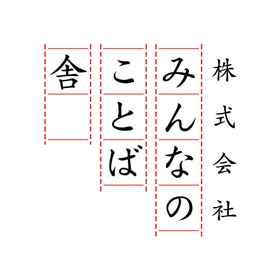
- Area
- Category
*Prices and options mentioned are subject to change.
*Unless stated otherwise, all prices include tax.
Recommended places for you
-
Appealing

Sapporo Ramen Yokocho
Ramen
Sapporo / Chitose
-
Appealing

Rukku and Uohei
Izakaya
Sapporo / Chitose
-
Appealing

Otaru Canal
Rivers, Lakes & Canyons
Otaru
-

Sapporo Clock Tower
Landmarks
Sapporo / Chitose
-
Appealing

Shirogane Blue Pond (Aoiike)
Rivers, Lakes & Canyons
Furano / Biei / Sounkyo
-
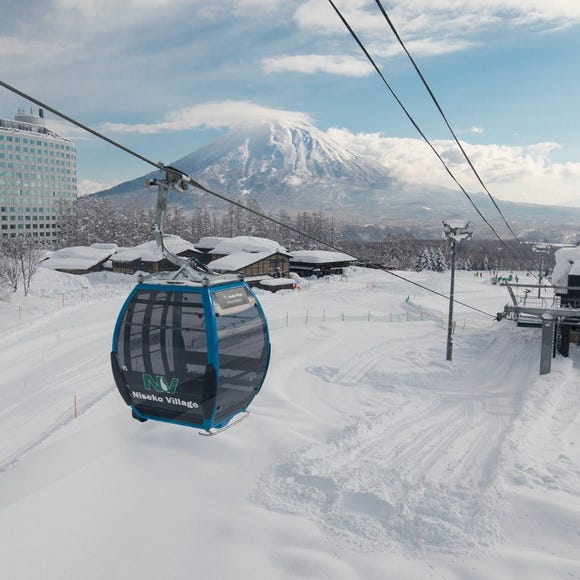
Niseko Village Ski Resort
Skiing & Snowboarding
Niseko / Rusutsu
-
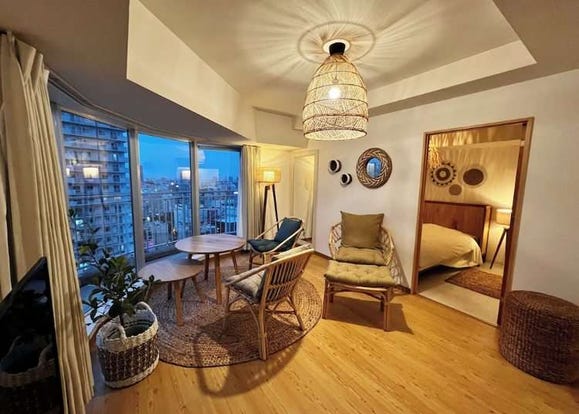
5 Best Apartment Hotels in Sapporo (Hokkaido): Family-Friendly Accommodations
-
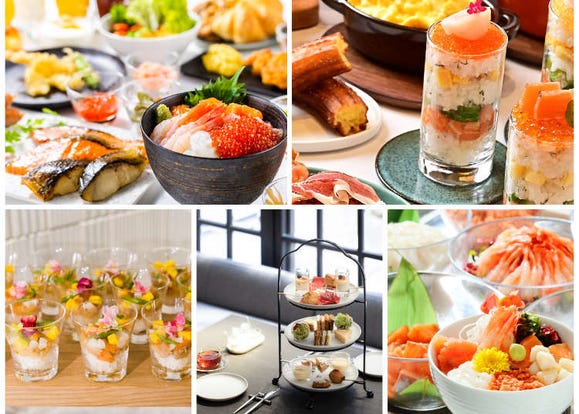
Expert-Recommended! 5 Otaru Hotels with Great Breakfasts
-
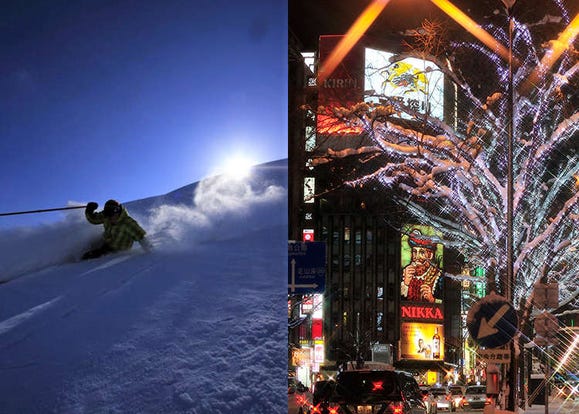
1-Day Winter Adventure in Sapporo (Hokkaido): Enjoy Snow by Day, Food by Night!
-
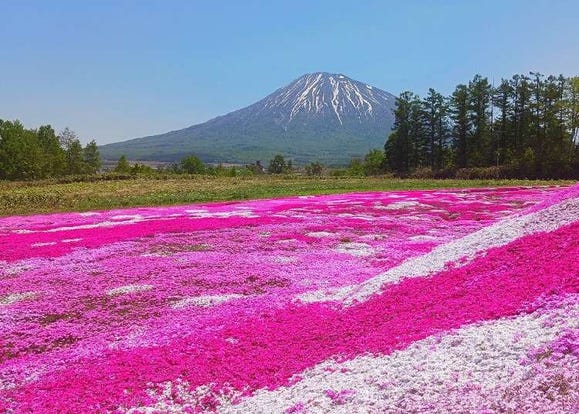
4 Must-Visit Spots for Beautiful Pink Moss Phlox Carpets in Hokkaido: Monthlong 'Floor Sakura' Viewing
-
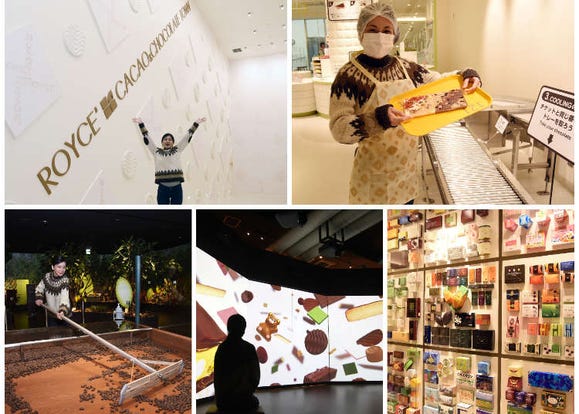
Hokkaido's ROYCE' Cacao & Chocolate Town: Fun Factory Tour & Chocolate Making Experience
-

Expert-Recommended! 5 Sapporo Hotels with Great Breakfasts
-

Top 5 Things to Do in Hokkaido's Biei and Furano Area: Shirogane Blue Pond, Lavender Fields, And More!
-

Noboribetsu Onsen: 5 Best Things to Do in Japan's Famous Hot Springs Town!
-

Healthcare in Japan for Tourists: What to Do When You Get Sick or Injured in Japan
-

10 Incredible Experiences to Enjoy in Niseko According to 5 Foreign Residents!
-

10 Tips for Driving in Hokkaido: Complete Guide to Planning Your Hokkaido Road Trip!
-

Kichijoji – Explore Tokyo’s Top-Rated Stylish Suburb in Half a Day!
- #best sushi hokkaido
- #things to do hokkaido
- #best ramen sapporo
- #what to bring to japan
- #new years in tokyo
- #what to buy in ameyoko
- #japanese nail trends
- #what to do in odaiba
- #onsen tattoo friendly tokyo
- #daiso
- #best sweets otaru
- #japanese fashion culture
- #best nature furano
- #japanese convenience store snacks
- #best japanese soft drinks



















